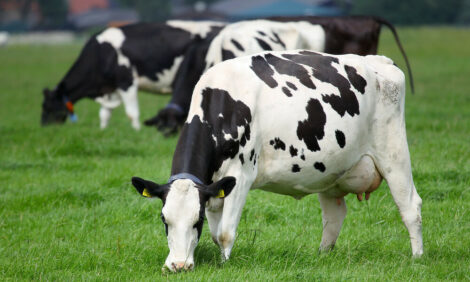



Government to Consult Local Livestock Group Leaders
SEOUL - The South Korean government plans to meet local livestock group leaders to come up with a way to improve the the competitiveness of cattle and hog growers as the country moves to fully open its market to U.S. beef.According to Yonhap News, the Ministry for Food, Agriculture, Forestry and Fisheries said talks are planned for Wednesday and Thursday with representatives from the Hanwoo Association, the Korea Dairy and Beef Farmers Association and the Korea Swine Association.
It said Vice Minister Jeong Hak-soo will hold talks directly with representatives and touch on various support measures.
Important issues that are to be discussed include modernizing the country's feed and livestock control system, improving the meat quality of domestically raised animals to better compete with cheaper imports, and clamping down on illegal country-of-origin mislabeling of meat by butcher shops, restaurants and catering services.
Because locally raised meat products are more expensive and preferred by consumers, mislabeling foreign imports as local beef and pork has become a common practice among many eateries and small-time butcher shops.
Livestock groups have generally been opposed to opening the market to U.S. beef, and said that they are skeptical about the government's ability to put support measures into practice.
"Livestock growers plan to demand that the government ensures minimum prices for calves and all types of meat cows, as well pay full compensation for animals that have to be culled in case of a brucella outbreak," said Nam Ho-kyung, chairman of the Hanwoo Association.
Under standing rules, once the agriculture minister posts the SPS on the gazette, it will replace the existing pact reached in January 2006.
The old deal only permits boneless beef from animals under 30 months old, while the new pact effectively allows most cuts to be imported without any age limit. Only specified risk materials (SRMs) like brains, tongue, vertebrae marrow, tonsils and part of the intestine are to be banned since they pose the greatest risk of transmitting mad cow disease to humans.
South Korea halted all imports in late 2003 after a mad cow case was reported in the U.S. In May 2007, U.S. beef reached the market again, but all quarantine inspections were halted in October after inspectors found banned SRMs in packages.
View the Yonhap News story by clicking here.
TheCattleSite News Desk


